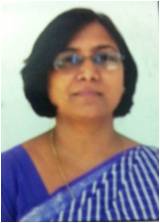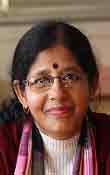Ability Grouping - Part 1
Ability Grouping - Part 1

Dr. Salma Paleja has a Doctorate in Business Administartion and a Bachelors degree in education. She has 25 years of experience in the field of education, which includes 8 years of experience as a principal. She currently heads the Social Science and Commerce department in Shanti Asiatic School, Ahmedabad.
As an Educator, I personally look forward to explore and experience new and different things that will definitely add to my learning. But, the only thing that hits me very hard as an educator,is grouping students on the basis of their ability; ability that is going to be purely judged and measured on the basis of the marks obtained.
I am writing this piece to express my apprehensions with regards to the same…To be honest, not apprehensions but disappointments. As Educators, we have always been told to express ourselves freely and fearlessly. As a part of this fraternity, it is not just our right but our responsibility to put forth our views, opinions and ideas and initiate a healthy debate in the interest of the nation.
I have decided to invest some time to understand and research on the pros and cons of “Ability Grouping”. After a careful analysis of many research papers on the same, I finally came to a conclusion that ‘the potential for problems generated by ability grouping far outweighs the scant benefits to be gained by grouping.’
I would like to put forth the following arguments to substantiate the statement:
1. Marks alone cannot be considered as the true indicator to decide the ability of students. And hence, grouping students on the basis of marks itself is unscientific. Sataparna Mukherjee was not amongst the top scorers in her class, but she took a giant leap, from a class XII student in a village to NASA. Eighteen-year-old Sataparna Mukherjee, a Class 12 student from a village near Kolkata, has been selected by the National Aeronautics and Space Administration (NASA) for its prestigious Goddard Internship Programme under the Goddard Institute for Space Studies (GISS). She is among five scholars chosen from across the world for this programme. Sataparna told TOI, "It all started in May last year when I was a member of a group on a social networking site where there were many members, including some scientists. One day I shared some of my thoughts on the 'Black Hole Theory', and one of the members of this group gave me NASA’s official website and told me to post my findings, which I did." Sataparna's paper on Black Hole Theory, and how this could be used to create a 'Time Machine', was hugely appreciated. "I am very happy to get this opportunity where I will also work as a researcher at the NASA centre in London," she said.Pulak Chakraborty, a professor of English at the Nabagram Hiralapal College, who's acting as Sataparna's referee at Oxford, said, "She is a very good student and her ability should not be judged through her marks alone. She is original, and that has made her attain so much."
2. Today, we advocate the idea of inclusion or establishing and maintaining warm, accepting classroom communities that embrace diversity and honour differences. Grouping leads to isolating student groups from one another. By separating students into classes that are composed predominantly of one or another group, ability grouping limits the number of positive relationships that might develop across lines. By grouping students together based on ability, there is a possibility that some students will experience discomfort with being placed into a group that is considered lower or higher than the other. This will also highlight the differences in cognitive abilities among students and can lead to feelings of isolation and separation from the larger group. Statistics prove that tracking/ grouping can be viewed as a step backwards in schools because it encourages children to be separated and also prevents diversity in classes.Tolerance and understanding of each other is less likely to occur and arrogance and bullying among students may be more prominent.
3. It is important that the students remain at the same pace of learning as others of their age because of social factors. We also cannot rule out the possibility of exerting unnecessary pressure on that group of students who would be grouped as “high achievers”. There are many instances under such grouping, where children feel pressurised on account of higher expectations. They subsequently get demotivated and distracted. If top 30 students, based on their marks, are to be put in one section as high achievers, they all are not on the same platform. The only reason of dividing them is to design a different curricular programme, where they are exposed to different learning environment. may be to prepare them for higher levels. But the lower quartile will definitely experience a difficult situation where again we will have to develop strategy to bridge the gap created for that group of students. Ability grouping causes the children assigned to the lower tracks, to internalize their label and causes a self-fulfilling prophecy which is quite damaging. It is not only a means of segregation but it also prevents diversity in the classroom. The theory believed in the early nineteen hundreds was that a person's level of intelligence remained static for life and hence there was “grouping”. But it is now known that knowledge can be acquired. Therefore, even though ability grouping seemed logical because of the theory of fixed intelligence, it is considered obsolete today
…to be continued.





















